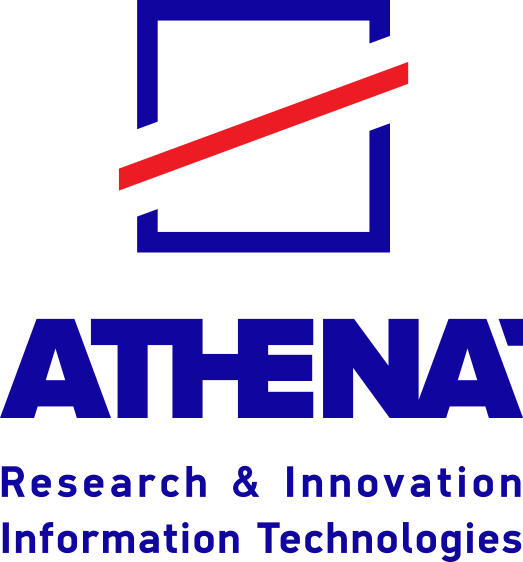Ηigh-level research at ARCHIMEDES in ΑΙ, Data Science and Algorithms
ARCHIMEDES Unit of the Athena Research Center is set to significantly contribute and strengthen the research in Greece in the fields of Artificial Intelligence, Data Science and Algorithms. ARCHIMEDES commences the outstanding research work with the aim of creating a research ecosystem that highlights the exceptional potential that exists throughout the country.

ARCHIMEDES Unit of the Athena Research Center is set to significantly contribute and strengthen the research in Greece in the fields of Artificial Intelligence, Data Science and Algorithms. ARCHIMEDES commences the outstanding research work with the aim of creating a research ecosystem that highlights the exceptional potential that exists throughout the country.
25 new fellows, together with approximately ten soon-to-be-selected postdoctoral researchers, and more than 30 collaborating senior researchers, will offer their knowledge, talent, and ideas to lay the foundations of an internationally renowned research unit.
We wish them a good start in their studies!
Meet our fellows
Vasilis Christoforidis |
|
 |
RESEARCH INTERESTS
Vasilis’ research interests lie in the intersection of computer science, machine learning, and economics and specifically on algorithmic game theory and mechanism design. His research will focus on topics in algorithmic game theory.
SHORT BIO
Vasilis is an MSc student in the School of Informatics at the Aristotle University of Thessaloniki in the area of Web and Data Science. He holds a bachelor’s degree from the same department. He has research experience in fair division, while he has also worked on topics around deep learning and reinforcement learning.
|
Antonis Dimakis |
|
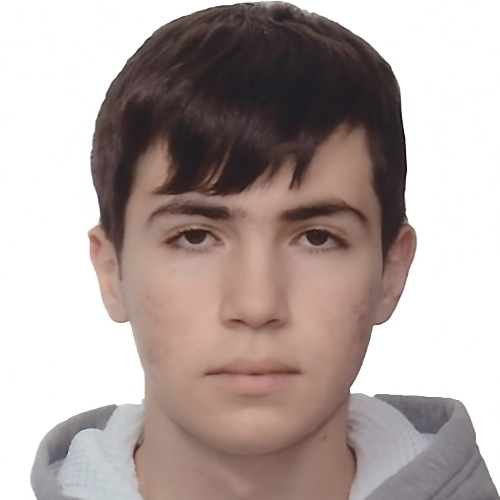 |
RESEARCH INTERESTS
Antonis’s research interests include machine learning, linguistics and cognitive science. Specifically, his research will focus on areas such as neural multilingual language models and NLP for low-resource languages.
SHORT BIO
Antonis received his bachelor’s degree from the Department of Informatics and Telecommunications of the National and Kapodistrian University of Athens, with specializations in the Foundations of Computer Science and Data and Knowledge Management. He has experience in designing and developing machine learning models, especially large language models (LLMs). He has won awards in various student contests, including the EUSO Experimental Natural Science competition, the "Aristotelis" Physics competition, and the Greek Mathematical Society’s Panhellenic Mathematics Competition, in 2017 and 2018.
|
Chrysa Oikonomou |
|
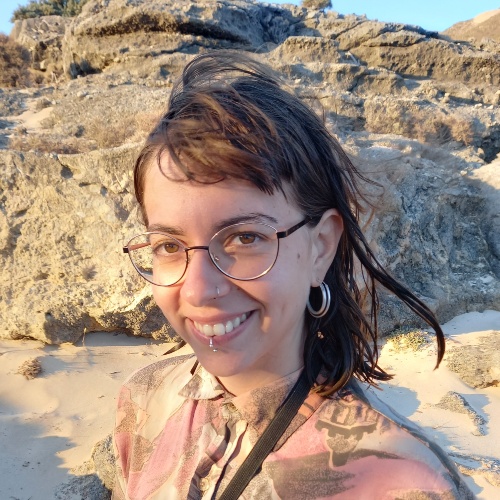 |
RESEARCH INTERESTS
Chrysa's research interests include algorithmic theory, machine learning and cryptography. In particular, her research will focus on areas such as automated decision making and zero-knowledge proofs.
SHORT BIO
Chrysa holds an Meng in Electrical and Computer Engineering from the National Technical University of Athens. Her thesis topic included proving the correctness and cost of various operations on binary tree structures using Liquid Haskell. She has research and work experience in designing real-time cryptographic protocols, symbolic modelling of systems and formal verification. More specifically, she was involved in a multitude of projects on creating symbolic models to describe adversary-secure protocols executed on the blockchain. She enjoys Hispanic music, cats, and comic books.
|
Christos Fragkathoulas |
|
 |
RESEARCH INTERESTS
Christos’ research interests include Explainable AI and fairness in networks. Specifically, his research will focus on areas such as counterfactual explanations, fairness enhancement for individuals and groups, graph-based algorithm explanations, and exploring contrastive explanations for specific input data pairs.
SHORT BIO
Christos, pursuing a PhD in explainable AI and fairness in networks at the University of Ioannina, holds an MEng with specialization in Artificial Intelligence and Data Science from the same university. He has research and work experience in machine learning, data mining, natural language processing and graph analysis. His thesis was on the application of machine learning techniques for creating embeddings for relational data. From November 2022 to October 2023, he worked as a research associate at university of Ioannina, collaborating with the CDI of Pfizer in Thessaloniki where he focused on developing innovative solutions for addressing healthcare misinformation detection on social media platforms.
|
Miltiadis Galanis |
|
 |
RESEARCH INTERESTS
Miltiadis’ research interests include machine learning in noisy data.
SHORT BIO
Miltiadis holds a Bachelor’s degree with distinction, from the Mathematics Department, University of Athens. He is graduating from the Department of Applied Mathematics of TU Delft, Netherlands. He has work experience as a Data Analyst and Data Scientist, developing artificial intelligence models for predictive forecasting, as well as data analysis for business optimization.
|
Nefeli Gkouti |
|
 |
RESEARCH INTERESTS
Nefeli's research interests include machine learning and causal AI. Specifically, her research will focus on areas such as causality and interpretability in machine learning, multimodal and generative models and their application in healthcare.
SHORT BIO
Nefeli holds an MSc degree in Computer Science from the Department of Informatics of the Athens University of Economics and Business, with specialization in machine learning, and a Bachelor degree from the Department of Mathematics of the National and Kapodistrian University of Athens. She has research and work experience in designing and developing machine learning models. Her MSc thesis was about the effects of stochastic gradient descent variants on Transformer models for natural language processing tasks. She has also collaborated with NCSR “Demokritos” as researcher, taking part in a project related to the design and development of an application, mapping audio to subtitles.
|
Odysseas Hlapanis |
|
 |
RESEARCH INTERESTS
Odysseas’ research interests focus on natural language processing with large language models, such as the well-known family of GPT models. He plans to improve the ability of such models to make logical inferences in order to safely use them in crucial healthcare or legal applications.
SHORT BIO
Odysseas holds an Meng in Electrical and Computer Engineering from the National Technical University of Athens. He has research experience in designing deep neural network architectures for natural language processing, computer vision and speech applications. His thesis titled “Adapted Multimodal BERT with Layer-wise Fusion for Sentiment Analysis” was presented in the international conference ICASSP 2023 in Rhodes.
|
Giannis Kalogeropoulos |
|
 |
RESEARCH INTERESTS
Giannis' research interests lie in the fields of geometric deep learning, multimodal fusion, and computer vision. Specifically, his work will focus on developing graph-based multimodal fusion methods, designing models that respect intra- and cross-modal symmetries and experimenting with cross-modal interactions.
SHORT BIO
Giannis holds an MEng in Electrical and Computer Engineering from the National Technical University of Athens, focusing on Computer Science. During his studies, he studied a lot of state-of-the-art deep learning techniques and cultivated a strong interest in Geometric Deep Learning. While working on his Diploma Thesis, he employed Graph Neural Networks and incorporated external knowledge for the multimodal task of Visual Dialog.
He has professional and research experience in studying and implementing machine learning models in a wide range of fields. Specifically, as a Machine Learning Engineer, he has worked on Natural Language Processing and Time Series Forecasting problems, employing, among others, pre-trained Language Models. Moreover, he has dove deeper into the MLOps techniques for orchestrating the whole lifecycle of an ML model. Finally, he has published and presented at an IEEE conference his work on Machine Learning and Edge Computing.
|
Sotiris Kanellopoulos |
|
 |
RESEARCH INTERESTS
Sotiris’ research interests include logic, algorithms, complexity and other related fields such as game theory. Specifically, his research will focus on the areas of computational complexity of counting problems and descriptive complexity.
SHORT BIO
Sotiris holds an MEng in Electrical and Computer Engineering from the National Technical University of Athens (NTUA). His thesis was about applications of logic in the field of computational complexity, specifically the descriptive complexity of counting problems.
He is currently a PhD student in the School of Electrical and Computer Engineering of NTUA on the subject of “Computational Complexity of Counting Problems”. He has received multiple awards in mathematics competitions, including three medals in National Mathematical Olympiads “Archimedes”. He has also been awarded twice in the Panhellenic Physics Competition and once in the Panhellenic Chemistry Competition.
|
Stathis Karypidis |
|
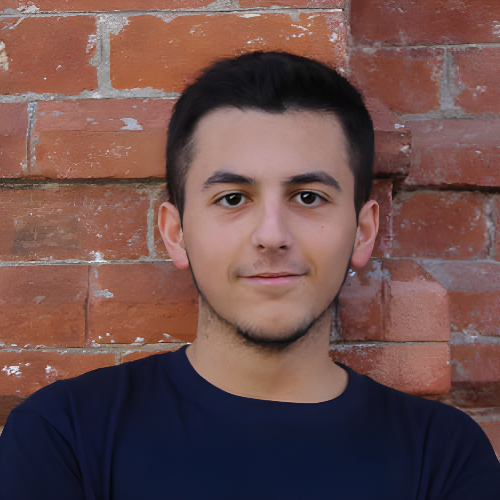 |
RESEARCH INTERESTS
Stathis’ research interests include computer vision and deep unsupervised learning. Specifically, his research will focus on developing innovative self-supervised learning methods to extract high-quality representations from large sets of unlabeled multimodal data.
SHORT BIO
Stathis holds an Meng in Electrical and Computer Engineering from the Democritus University of Thrace. Specifically, he chose the «Electronic and Information Systems» specialization and graduated in December 2022, achieving the highest grade among his peers. From the early years of his studies, he demonstrated a keen interest in the field of artificial intelligence and data science, actively participating in various annual scientific groups and events. He has relevant research experience in designing, developing, and evaluating self-supervised learning methods. While working on his diploma dissertation thesis, he studied unsupervised learning techniques for leveraging large sets of unlabeled data to enhance accuracy, efficiency, and scalability of perception systems used in autonomous vehicles.
|
Andreas Kontogiannis |
|
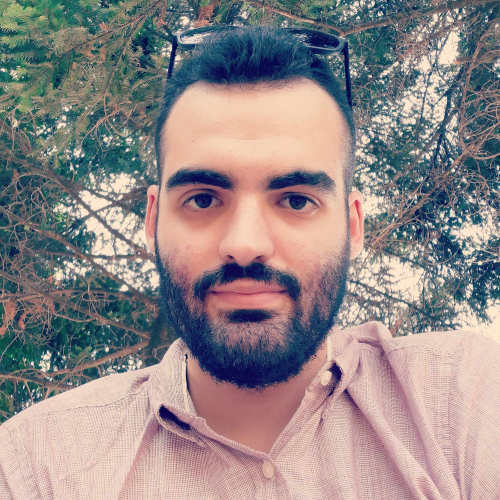 |
RESEARCH INTERESTS
Andreas' research interests include reinforcement learning (RL) theory and its applications to algorithmic game theory. Specifically, his research will focus on areas such as multi-agent RL and learning in games (e.g. in stochastic games).
SHORT BIO
Andreas holds an MSc degree in Data Science and Machine Learning from the National Technical University of Athens and an MEng in Electrical and Computer Engineering from the same institution. In parallel to his studies, he was a research assistant in various research labs, including the AI labs at NCSR “Demokritos” and at the University of Piraeus, while he successfully completed a 6-month internship at Amazon as an Applied Scientist in Barcelona. His so far research experience has focused on RL; he has published his work on different areas, including exploration in multi-agent RL for solving cooperative games, interpretable RL applied to complex real-world congestion games and RL for optimizing focused web crawlers.
|
Alexandros Lolos |
|
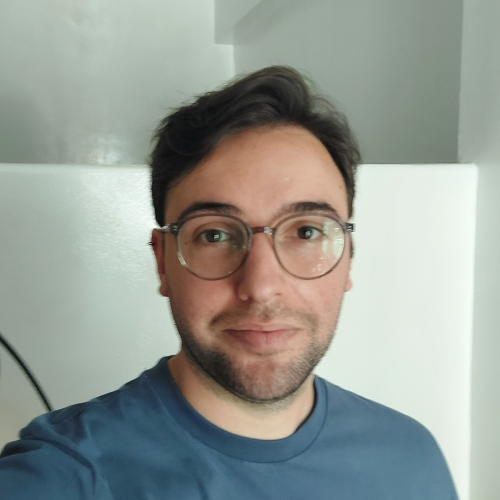 |
RESEARCH INTERESTS
Alexandros’ research interests include game theory, linear algebra and reinforcement learning. Specifically, his research will focus on areas such as algorithmic game theory and mechanism design under data-driven paradigms.
SHORT BIO
Alexandros is finishing his studies for an MSc degree in Statistics from the Department of Statistics from Athens University of Economics and Business (AUEB), with specialization in Stochastic and Computational Statistics, and holds an undergraduate degree in Statistics from the Department of Statistics from AUEB. In the present time, he is completing his MSc thesis on reinforcement learning. He has work experience in designing and developing software to automate and digitize operations for small businesses.
|
Andreas Lolos |
|
 |
RESEARCH INTERESTS
Andreas is primarily interested in studying the brain at a microscopic level. His research focuses on modeling the input and output layers of biological neural networks. Additionally, he is involved in developing and analyzing artificial intelligence architectures that are based on biological principles.
SHORT BIO
Andreas holds an MSc degree in Medical Physics from the Department of Medicine at the National and Kapodistrian University of Athens (NKUA), specializing in Magnetic Resonance Imaging (MRI). He also holds a Bachelor's degree in Physics from the Department of Physics of NKUA, with a specialization in Nuclear and Particle Physics. He has research experience in studying angular distributions of jets recorded at the Large Hadron Collider (LHC) at CERN. Specifically, during his undergraduate studies, he investigated the angular correlation between jets in dijet systems using the pull vector. Furthermore, he is actively involved in the development and application of advanced imaging techniques using MRI systems. Specifically, from 2022 to 2023, as part of his MSc thesis, he participated in the organization and analysis of MRI experiments aiming to obtain real-time spatial temperature distributions.
|
Thomas Melistas |
|
 |
RESEARCH INTERESTS
Thomas’ research interests include multimodal and unsupervised learning, interpretability and causality. Specifically, his research will focus on areas such as causal representation learning and generative models, as well as their biomedical applications.
SHORT BIO
Thomas holds an MEng in Electrical and Computer Engineering from the National Technical University of Athens, with specialization in Computer Science. The topic of his thesis was Lyrics and Vocal Melody Generation conditioned on Accompaniment. He has extensive work experience as Machine Learning/MLOps Engineer and has published papers in various conferences on the fields of computational creativity, music information retrieval, affective computing and speech processing. He has showcased great interest in the application of AI in the arts and especially music. He has developed various related projects and has participated in workshops and hackathons, being awarded the Best Hack / Research Direction Award in HAMR 2020. His interests include music, photography and poetry among others.
|
Georgios Moschovis |
|
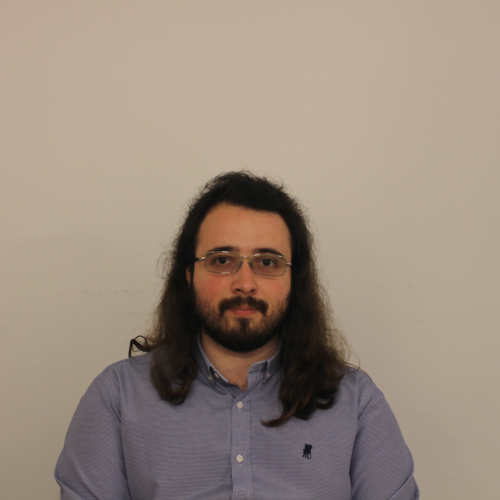 |
RESEARCH INTERESTS
Georgios develops dense retrieval methods for biomedical documents, text generation pipelines, image encoders for diagnostic captioning. His ultimate objective is to contribute to the advancements in Natural Language Processing research, by building systems that are both robust and truthful.
SHORT BIO
Georgios is a PhD student at Athens University of Economics and Business, focusing on multi-step textual entailment and deductive reasoning for biomedical question-answering systems, under the supervision of Professor Ion Androutsopoulos. He is also a fresh graduate from the MSc in Machine Learning at KTH Royal Institute of Technology, wherehe was involved in the research carried out by Neural Dynamics Lab at SciLife, while he also received Karl Engvers' Best Performance Award in Spring Semester 2020-21 for his excellent performance. He has published work in ReScience Journal Volume 8 during the eproducibility challenge 2021 and CLEF working notes in 2022 on behalf of Neural Dynamics Lab, as well in 2023 as part of AUEB NLP Group that ranked 1st in concept detection task and 3rd in the caption generation task of ImageCLEF 2023. He is a member of AUEB NLP Group and Archimedes Unit fellow.
|
Vasiliki Papanikou |
|
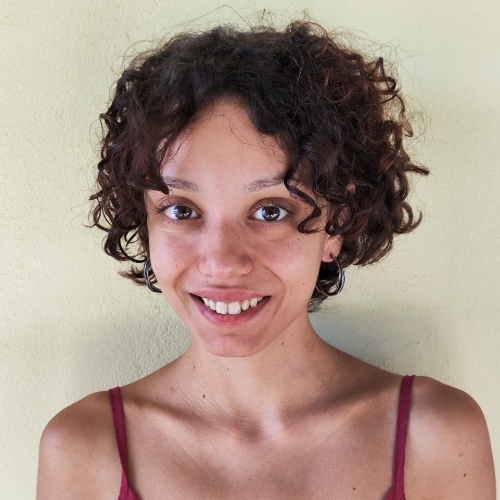 |
RESEARCH INTERESTS
Vasiliki’s research interests include causality and fairness in Data Science and Machine Learning. Specifically, her research will focus on areas such as explainable fairness in networks and explainability of algorithms that operate on graphs, such as graph neural networks.
SHORT BIO
Vasiliki holds a Diploma degree from the Department of Computer Science and Engineering of University of Ioannina. She has research and work experience on machine learning and artificial intelligence algorithms. Her thesis was on predicting changes in cluster membership in evolutionary social networks and an internship on recommender systems at Terracom. From 2022 to 2023 she was a ML/AI Researcher at a team at University of Ioannina on a project which deals with the development of automated tools using machine learning and deep learning to understand, evaluate and deal with misinformation on health issues in in cooperation with Pfizer CDI at University of Ioannina.
|
Vasilis Pollatos |
|
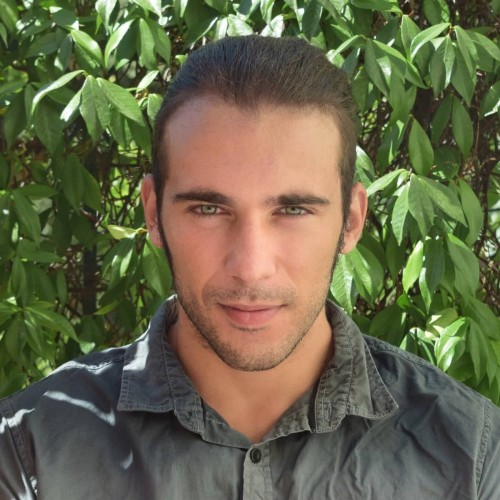 |
RESEARCH INTERESTS
Vasilis' research interests include optimization and statistical learning theory. Specifically, his research will focus on areas such as learning in games and computation of equilibria.
SHORT BIO
Vasilis holds a Meng in Electrical and Computer Engineering from the National Technical University of Athens with a specialization in Computer Science. He has research and work experience in the development and analysis of machine learning algorithms. In 2020 he was an intern at NCSR “Demokritos”, where he applied deep learning techniques to satellite imagery problems. From September 2022 to August 2023 he worked as a research assistant at the Max Planck Institute for Software Systems, focusing on reinforcement learning and robustness problems.
|
Christodoulos Santorinaios |
|
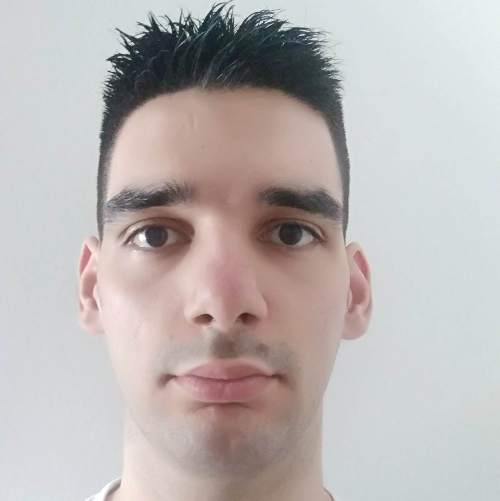 |
RESEARCH INTERESTS
Christodoulos' research interests include the interplay between game theory and machine learning. Specifically, his research will focus on algorithms for equilibria computation and on the use of predictions for beyond the worst-case analysis.
SHORT BIO
Christodoulos holds an MSc degree in Data Science and Machine Learning from the National Technical University of Athens and an MEng in Electrical and Computer Engineering from the same institution. He has research experience in statistical learning and algorithmic game theory. More specifically, as an undergrad in 2020 he completed his diploma thesis experimenting with truncated statistics. Later on, as a grad student he studied the problem of Fair Division, publishing work on the topic. During the beginning of his studies, he had been supported by “The Great Moment of Education” scholarship by Eurobank while as a student he had received a medal in the 2014 National Mathematical Olympiad.
|
Nikos Spyrou |
|
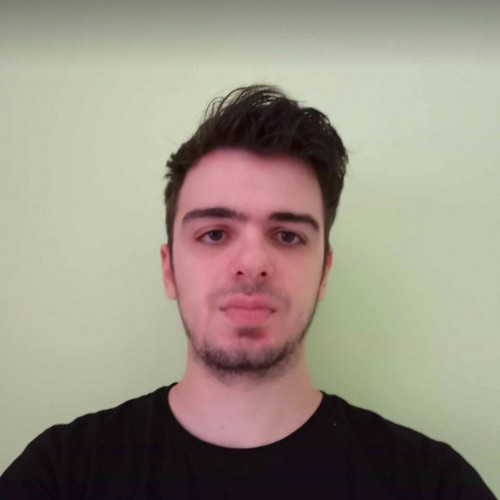 |
RESEARCH INTERESTS
Nikos’ research interests include computer vision, deep learning, causality, generative AI and medical applications. Particularly, his research will focus on developing deep learning methods which will have the ability of causal inference.
SHORT BIO
Nikos holds an MEng in Electrical and Computer Engineering from the National Technical University of Athens with specialization in computer science. His previous research experience involves applications of deep learning techniques in computer vision problems and specifically designing deep learning methods of semi-supervised and unsupervised learning.
|
Nikos Tsikouras |
|
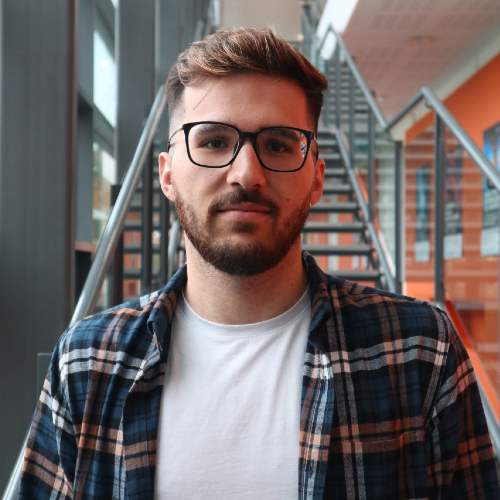 |
RESEARCH INTERESTS
Nikos’ research interests lie in the foundational aspects of machine learning. He aims to explore novel algorithms and advance the understanding of their theoretical properties with the ultimate goal of bridging the gap between theory and practice.
SHORT BIO
Nikos holds a Bachelor's degree in Mathematics from the University of Patras, where he graduated summa cum laude. Additionally, Nikos pursued an MSc of Science in Statistics with Data Science at Imperial College London. He then went on to complete his MRes at Lancaster University, specializing in Statistics and Operational Research. Throughout his academic journey, Nikos was involved with projects spanning a range of topics in statistics and machine learning but was always inclined to the theoretical aspects of machine learning, complementing his strong mathematical foundation. He has been awarded 3 prizes for his academic performance as well as a scholarship from the John S. Latsis Public Benefit Foundation to support his postgraduate studies.
|
Thodoris Tsironis |
|
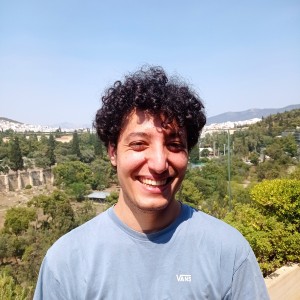 |
RESEARCH INTERESTS
Thodoris' research interests include Phase Transition Phenomena, Information Theory and Machine Learning. Specifically, his research will focus on areas like loss landscape analysis and the description of learning algorithms on high dimension.
SHORT BIO
Thodoris is a PhD candidate at the Section of Electronic Physics and Systems of the Physics Department of the National and Kapodistrian University of Athens (NKUA), holds an MSc degree on Subatomic Physics and Elementary Particle Physics from the Department of Physics of NKUA, and an undergraduate degree from the Department of Physics of NKUA. He has research and work experience in Information Theory and Statistical Physics. More specifically, in the years 2020-21, he worked as a research associate of the Institute of Accelerating Systems and Applications, providing research on the Information Theory of MIMO telecommunication channels.
|
Apostolis Tsorvatzis |
|
 |
RESEARCH INTERESTS
Apostolis' research interests include machine learning algorithms and algorithmic game theory. Specifically, his research will focus on areas such as Online Learning, Online Optimization, Bandits and Mechanism Design.
SHORT BIO
Apostolis is a final year student in the School of Electrical and Computer Engineering at the National Technical University of Athens, majoring in Computer Science. He has research experience in algorithms as a research assistant in the CoreLab laboratory of NTUA, since 2022. During his school years he has participated in several Mathematics competitions where he has won awards and during his university years in Informatics competitions.
|
Vasiliki Vasileiou |
|
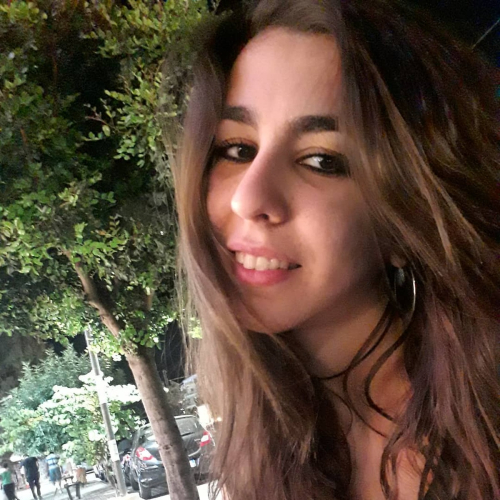 |
RESEARCH INTERESTS
Vasiliki’s primary research interests lie in the fields of Artificial Intelligence and Machine Learning, with a specific focus on 2D and 3D Computer Vision (including Semantic and Temporal Segmentation, Detection, Weak Supervision, and Language Supervision), as well as Image Processing and Robotics.
SHORT BIO
Vasiliki holds an MSc in Artificial Intelligence from the University of Amsterdam (UvA), where her thesis project focused on "Language-Driven 3D Scene Understanding." Prior to that, she completed an MEng in Electrical and Computer Engineering at the National Technical University of Athens (NTUA), with a thesis on the field of "Temporal Segmentation in Videos". She has research experience, having worked as an undergraduate research assistant at the CVSP lab at NTUA and as an AI graduate research intern at ATLAS lab at UvA (in collaboration with TomTom). During her undergraduate and graduate studies, she published two papers, one in EUSIPCO and another in ReScience C. Additionally, she gained teaching experience as a teaching assistant in undergraduate and graduate AI and CS-related courses at the University of Amsterdam and Vrije Universiteit.
|
Giannis Vlahos |
|
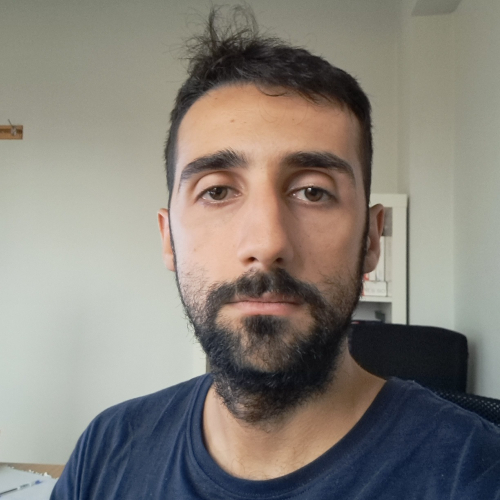 |
RESEARCH INTERESTS
Giannis’ research interests include computer vision and algorithmic game theory. In particular, his research will focus on areas such as mechanism design and combinatorial auctions.
SHORT BIO
Giannis holds an MSc degree in Data Science and Machine Learning from the National Technical University of Athens and an MEng in Electrical and Computer Engineering from the same institution. He has research experience in machine learning and designing predictive algorithms with medical data. He also has hands-on experience in computer vision and the use of neural networks. As a student he has been awarded 2nd prize in the 29th Mathematical Olympiad “Archimedes”.
|
Andreas Zamanos |
|
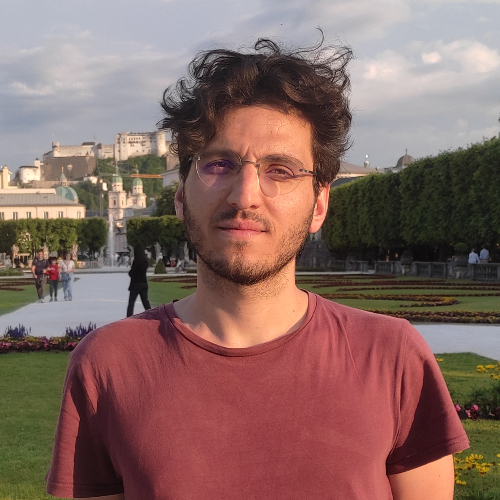 |
RESEARCH INTERESTS
Andreas' research interests include machine learning, structural biology, biophysics, computer vision, graph theory, and computational geometry. Andreas is primarily interested in applying machine learning techniques to cryo-electron microscopy and protein structure analysis, aiming to advance our understanding of biological systems by developing innovative algorithms and models.
SHORT BIO
Andreas holds a Diploma in Biology from the National and Kapodistrian University of Athens (NKUA) and an MSc Degree in Data Science and Information Technologies from NKUA's Department of Information Technology and Telecommunications. The last two years he has been a scientific collaborator at NKUA and Athena Research Center, contributing to machine learning applications in structural biology. With a strong academic background and expertise in both biology and data science, Andreas brings a unique perspective to interdisciplinary challenges. He combines his knowledge of machine learning with a deep understanding of biological systems to contribute to cutting-edge research, in order to enhance our understanding of protein structures and their function.
|

